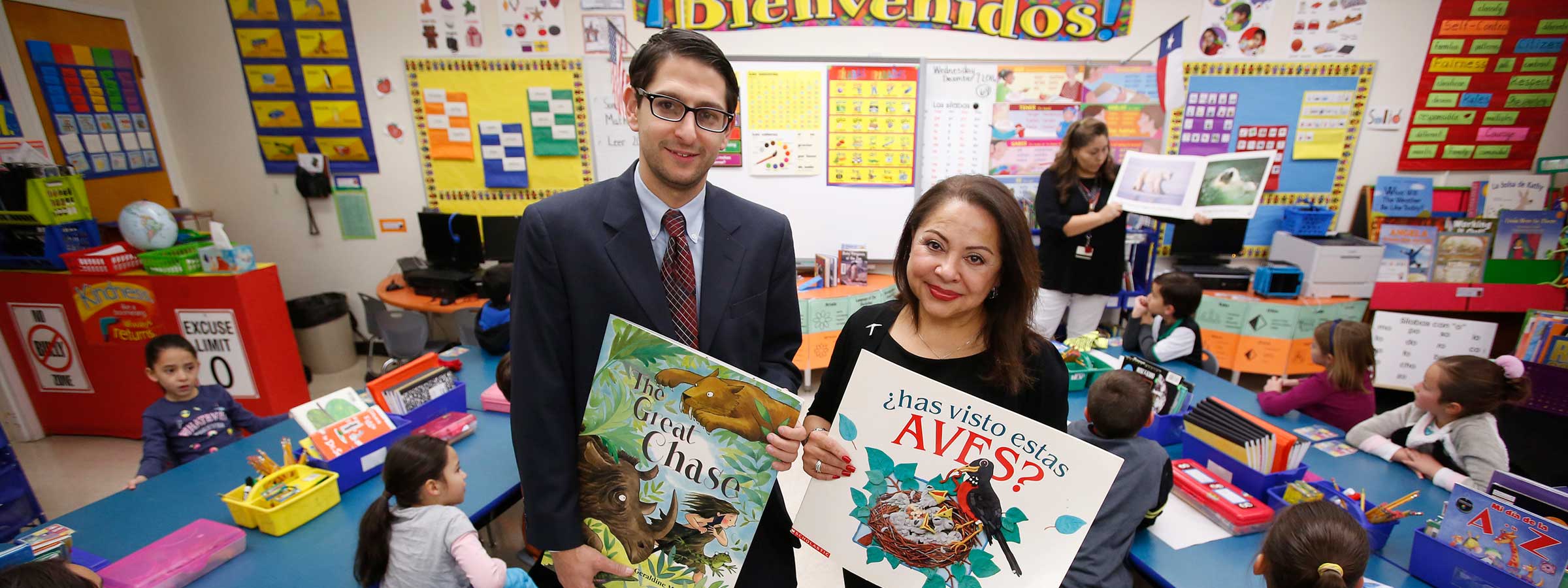
MinerAlert

MinerAlert

UTEP is situated in one of the largest bi-national metropolitan areas in the Western Hemisphere and less than one mile from the U.S.-Mexico border. Our population is primarily bilingual, with English and Spanish being the primary languages. We are home to a number of internationally recognized bilingual programs and faculty whose research focuses on bilingual education and learning. Research in bilingual language and cognition is an area of strength at UTEP in the psychology department and across disciplines such as linguistics, rehabilitation science, speech-language pathology, and education. We will leverage our faculty expertise and collaborations with institutions in Mexico to expand our existing programs and become a national center for teaching and research in bilingualism, bilingual education, second language learning, and heritage language learning. UTEP has a robust set of programs designed to support the transition of Spanish-speaking students from Mexico and Latin America. We will build on the success of the English Language Institute, which provides a quality, intensive program for non-native speakers, and expand the Programa Interamericano Estudiantil (PIE), which provides students with tailored programs to help increase their command of English and transition to degree programs at UTEP and other institutions across the nation. UTEP can serve as a gateway for international students who want to prepare for academic programs at UTEP or other U.S. universities.
UTEP will also be a national leader in offering academic degree programs and certificates with bilingual emphasis. UTEP’s Creative Writing program is the only bilingual MFA in the world, and the Undergraduate Certificate in Bilingual Professional Writing prepares students to communicate in print and digital environments in both English and Spanish. We will add more programs across all colleges, and collaborate with other institutions in the United States and Mexico to expand the content, profile and accessibility of our bilingual programs, including making them distance-enabled where appropriate.
UTEP also provides a wide variety of professional programs with Spanish concentrations that prepare professionals for bilingual settings and practice. The School of Pharmacy’s doctoral degree includes advanced training in Spanish for pharmacists that ensures professionals excel in multicultural and bilingual environments. The program attracts students from across the country interested in preparation to serve bilingual and Spanish-speaking communities. UTEP will leverage our bilingual and binational location to become the leading institution for preparing professionals in health care, business, engineering, public administration, and education to work in multicultural organizations and Spanish-speaking communities. UTEP will place special emphasis on further development of programs to certify bilingual K-12 teachers in our region and beyond.
UTEP will build on our current research strength in bilingualism and language acquisition by taking advantage of the opportunities offered by our location. UTEP is uniquely positioned to become the top institution in the nation and among the top institutions in the world in this area. The Consortium for Scientific Research on Bilingualism brings together experts from three colleges and multiple disciplines. The related research laboratories will continue to provide training to many undergraduate students who are new to research, allowing them to leverage their bilingual skills. We will build on the current individual visibility of our scholars to gain recognition as an interdisciplinary entity, build cross-institutional networking and collaborative experiences for our students and faculty, and develop pipelines for our students to access graduate and postdoctoral training opportunities.